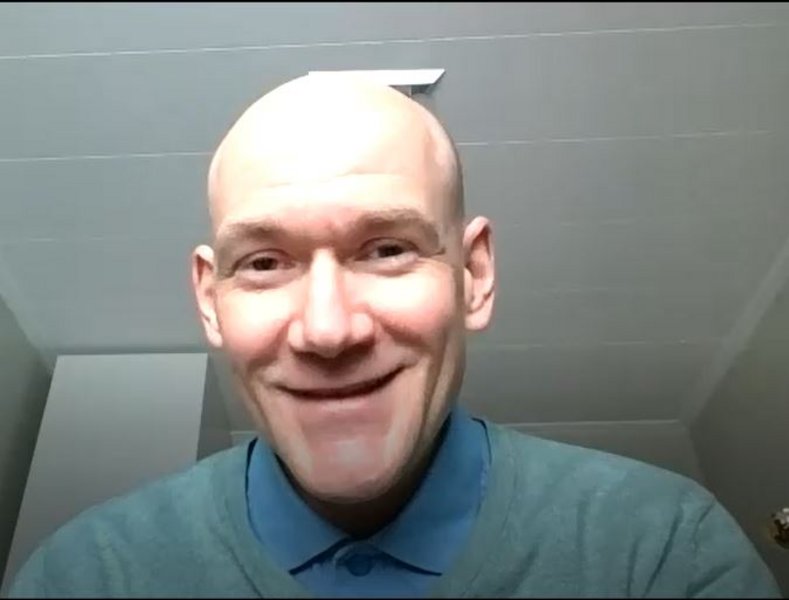Sweden: Uncovering Nordic Education and Society with Janne Holmén
Listen to a podcast on the educational systems of the Nordic countries.

This podcast tackles a wide-range of factors about the educational systems of the Nordic countries, focusing primarily on Sweden and comparisons with Finland. On the way, it answers the following questions:
- Why does the Finnish education system have such a good reputation around the world?
- After decades of reform, is the Swedish education system in crisis?
- How does decision-making and the politics around education in Finland and Sweden differ and how is it similar?
- What role do schools and teachers play in the creation of our 'mental maps'? A term usually used by cultural geographers, mental maps encompass many different dimensions of our world view: from an awareness of our country and region’s place in the world, to our view of history and where we sit on an imaginary timeline.
- How is all of this influenced by national politicians and institutional systems, and even the international dimension?
Join the editor of nordics.info, Nicola Witcombe, on her virtual visit around the Nordic countries, this time to Janne Holmén, Associate Professor in the Department of Education at Uppsala University to discover the answer to these questions. Janne is also an affiliated researcher at the Institute of Contemporary History, Södertörn University, and he is from the Åland Islands which has influenced his research interests.
Podcast
Extra material: The Nordics: Small state theory in International Relations
Works mentioned in this podcast:
- Alexander von Humboldt's Cosmos (1845).
- Annette Baker-Fox's The Power of Small States: Diplomacy in World War II (1959).
- Thomas Piketty's Capital in the 21st Century (2014), and Capital and Ideology (2020).
Further reading:
- J. Holmén, ‘Time and Space in Time and Space. Mapping the Conceptual History of Mental Maps and Historical Consciousness’ in Contributions to the History of Concepts 15, 2 (2020) pp. 105–129.
- J. Holmén, ‘Den demokratiska skolan. Om likvärdighet och delaktighet 1960–2020’ [Nordic Models for a Democratic School: Educational Reform and Political Culture in Sweden and Finland 1960–2020] in Meinander, Henrik, Petri Karonen och Kjell Östberg, eds. Demokratins drivkrafter. Kontext och särdrag i Finlands och Sveriges demokratier 1890–2020 [The driving forces of democracy. Context and characteristics of the democracies of Finland and Sweden 1890–2020] (Helsingfors: Svenska litteratursällskapet, 2018) pp. 257–294.
- J. Holmén, ‘Changing Mental Maps of the Baltic Sea and Mediterranean Regions’ in Journal of Cultural Geography 35, 2 (2018) pp. 230–250.
- J. Holmén, ‘Mapping historical consciousness’ in Autonomy & Security 1,1 (2017).
- J. Holmén and B. Furuhagen ‘From seminar to University. Dismantling an Old and Constructing a New Teacher Education in Finland and Sweden, 1946–1979’ in Nordic Journal of Educational History, 4, 9 (2017).
- J. Holmén, 'A Small Separate Fatherland of our Own' in Island Studies Journal 9, 1 (2014) pp. 135–154.
- J. Holmén, ‘Nation Building in Kenyan Secondary School Textbooks’ in Education Inquiry (Umeå University) 2, 1 (2011) pp. 79–91.
- J. Holmén, Den politiska läroboken: bilden av USA och Sovjetunionen i norska, svenska och finländska läroböcker under Kalla Kriget. [Political textbooks: the depiction of the USA and the Soviet Union in Norwegian, Swedish and Finnish schoolbooks during the Cold War.] (Uppsala: Studia Historica Upsaliensia, 2006).
- N. Götz and J. Holmén, ‘Introduction to the theme issue ‘Mental maps: geographical and historical perspectives’’ in Journal of Cultural Geography 35, 2 (2018) pp. 157–161.
| More about the podcast series: ’The Nordics Uncovered: Critical Voices from the Region’ |
|---|
| This podcast is part of a series to find the answers to big questions like: What is the state of the Nordics today? How do researchers investigate Nordic society and concepts? And smaller questions like: What leads people to research such a range of weird and wonderful subjects, and how is it done in practice? In the series, different researchers (from Denmark, Iceland, Norway, Sweden, Finland, Germany and the US) give listeners their take on subjects they have studied and researched for years. They also give an overview of key research areas and how this all plays into the development of society. |
| Janné's podcast is the third in the series and next time it will be Elisabeth Staksrud, professor in media and communication at the University of Oslo, who will be talking about Nordic childhood and children's online lives. |
| Follow @nordicsinfo on Facebook or Twitter to keep up to date with the series! |